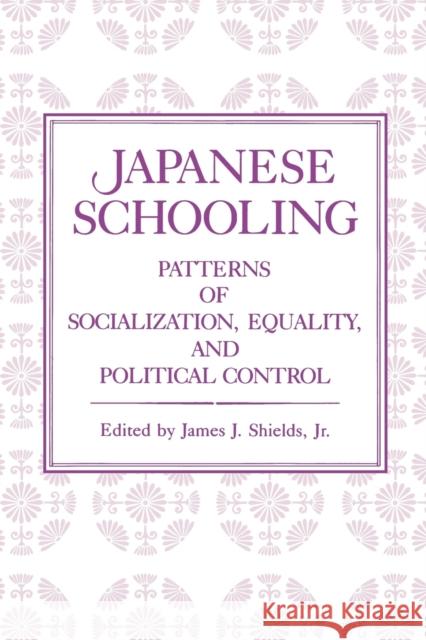Japanese Schooling: Patterns of Socialization, Equality, and Political Control » książka
Japanese Schooling: Patterns of Socialization, Equality, and Political Control
ISBN-13: 9780271023403 / Angielski / Miękka / 1993 / 316 str.
Japanese Schooling is organized around important crosspoints for understanding the historic roots and contemporary features of Japanese education. These include (1) socialization for discipline at home and in school; (2) the impact of university examinations on educational equality and moral development; and (3) centralized control and national identity. Written by leading American and Japanese scholars, Japanese Schooling is uniquely informative and comprehensive, with wide-ranging and critical analyses of sensitive issues and traditional educational questions. Among the topics that highlight both strengths and weaknesses are: nursery schooling, pupil violence in junior high schools, the reasons for high achievement levels in mathematics, the textbook controversy and teacher unionism, the role of large class size in teaching cooperative behavior, gender issues, and special education. As one reviewer said, "The book has no equal among recently published works which in comparison avoid sharp analysis and are narrowly focused." Another feature is the bibliography of more than 200 English-language sources on Japanese education published since 1972. It constitutes probably the most complete bibliographic research base currently available for those interesting in studying Japanese education. Overall, Japanese Schooling shows every promise of taking a place alongside Herbert Passin's Society and Education in Japan, published in 1965 and long-considered the classic reference for understanding the interplay between contemporary educational issues and the permanent patterns of Japanese culture.











